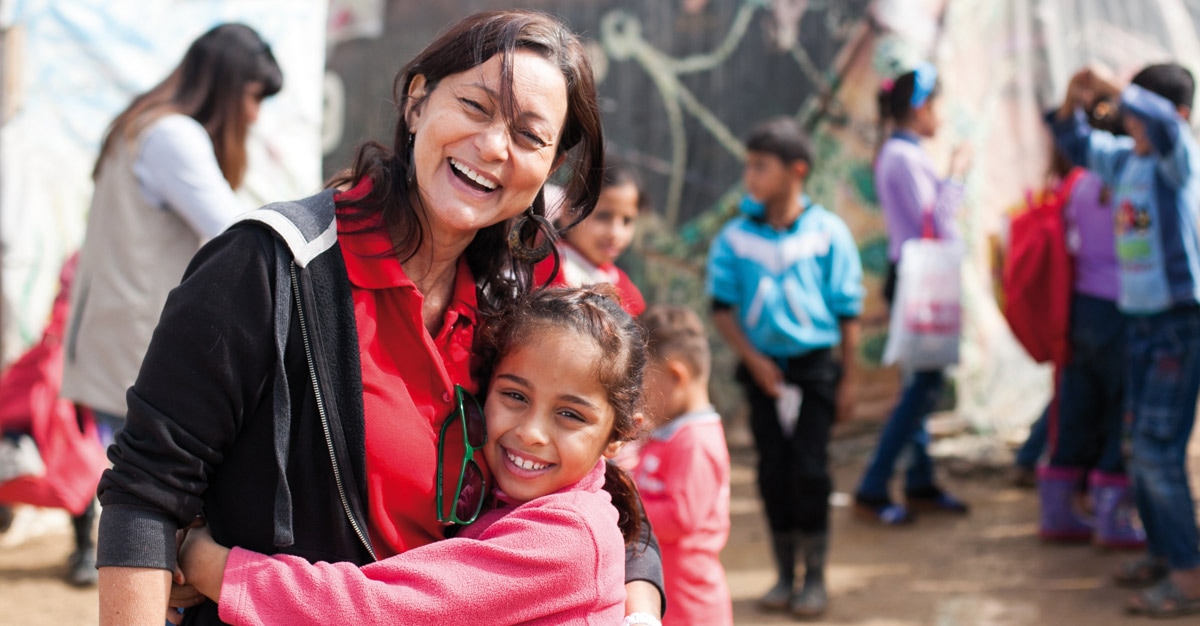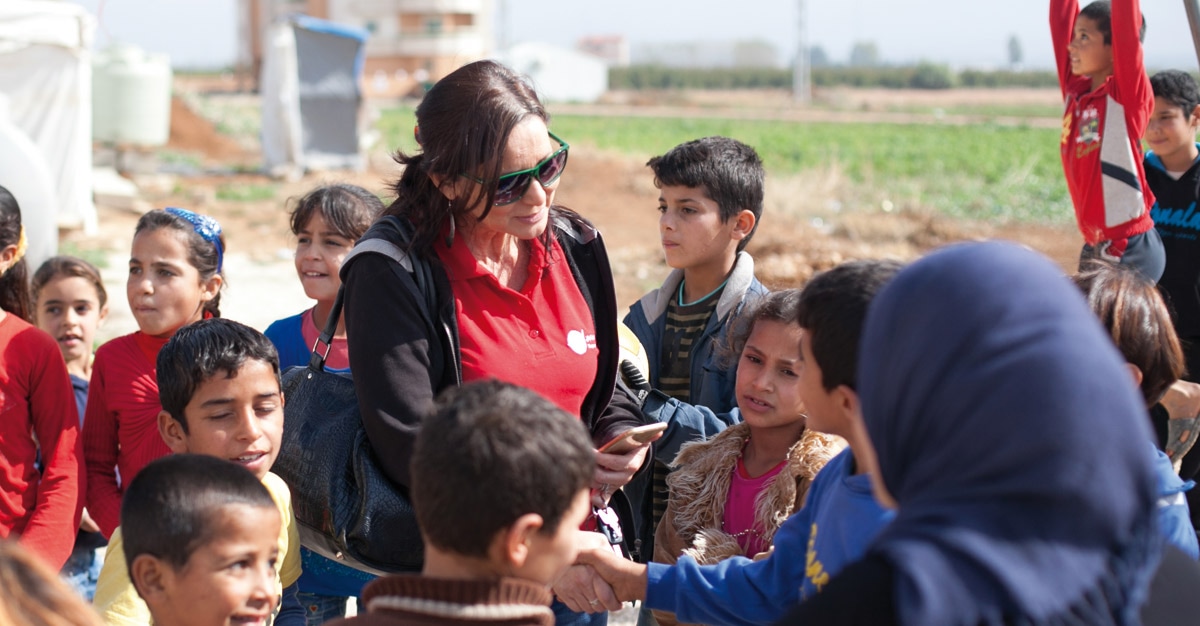|
Each year on the 8th of March, International Women’s Day encourages us all to forge a better working and more gender inclusive world. Children on the Edge works with local partners to restore the ingredients of a full childhood to some of the most vulnerable children worldwide. A big part of this is working towards equality in opportunities and an end to discrimination for the girls we work with. The theme for the 2017 International Women's Day is #BeBoldForChange and we are privileged to be partnering with a number of truly inspirational women, who constantly use boldness and strength to bring about change for women and girls in their communities. Nuna Matar is the Director of Triumphant Mercy , the Lebanese NGO we partner with to provide education for 500 Syrian refugee children in Bekaa Valley, Lebanon. We interviewed Nuna about what inspires her to be bold in creating change, what changes are possible, and how she overcomes obstacles and barriers in her work.
Support usComments are closed.
|
RECEIVE OUR EMAILSBlog Categories
All
Archives
July 2024
|
|
JOIN US ON SOCIAL MEDIA
|
Annual Report | Contact Us | Jobs | Media Centre | Resources | Shop
Accessibility & Policies: Accessibility | Equity, Diversity & Inclusion Policy | Complaints| Privacy Policy | Safeguarding
Accessibility & Policies: Accessibility | Equity, Diversity & Inclusion Policy | Complaints| Privacy Policy | Safeguarding
Children on the Edge, 5 The Victoria, 25 St Pancras, Chichester, West Sussex, PO19 7LT, UK | 01243 538530 | [email protected]




 Give monthly
Give monthly Fundraise for us
Fundraise for us RSS Feed
RSS Feed
